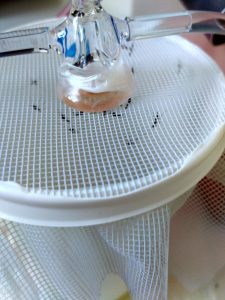Malaria is an infectious disease transmitted by female Anopheles mosquitoes that represents an important risk to global health. In 2018 there were 228 million cases, 405,000 of which resulted in death. The infection is controlled mainly by controlling the vector, that is, the mosquito that transmits the disease. However, in recent years, mosquitoes have become resistant to the insecticides used today. For this reason, several innovative vector control measures have emerged, such as, the release of genetically modified mosquitoes or the introduction of sterile males. However, these innovative methods depend on the creation in laboratory of large quantities of mosquitoes. This production of millions of Anopheles mosquitoes in the laboratory is limited, as female mosquitoes need to feed on blood to produce eggs. Therefore, large amounts of blood would be required, which entails both ethical and financial limitations. In order to find a solution to these limitations, our research group has developed an artificial blood-free diet that allows the production of Anopheles mosquitoes in the laboratory with the same effectiveness as blood. We believe that this diet will be a valuable tool for new measures to control mosquitoes that cause malaria and other mosquito-borne diseases as it will make it possible to produce millions of mosquitoes in captivity without the need for animal or human blood.
